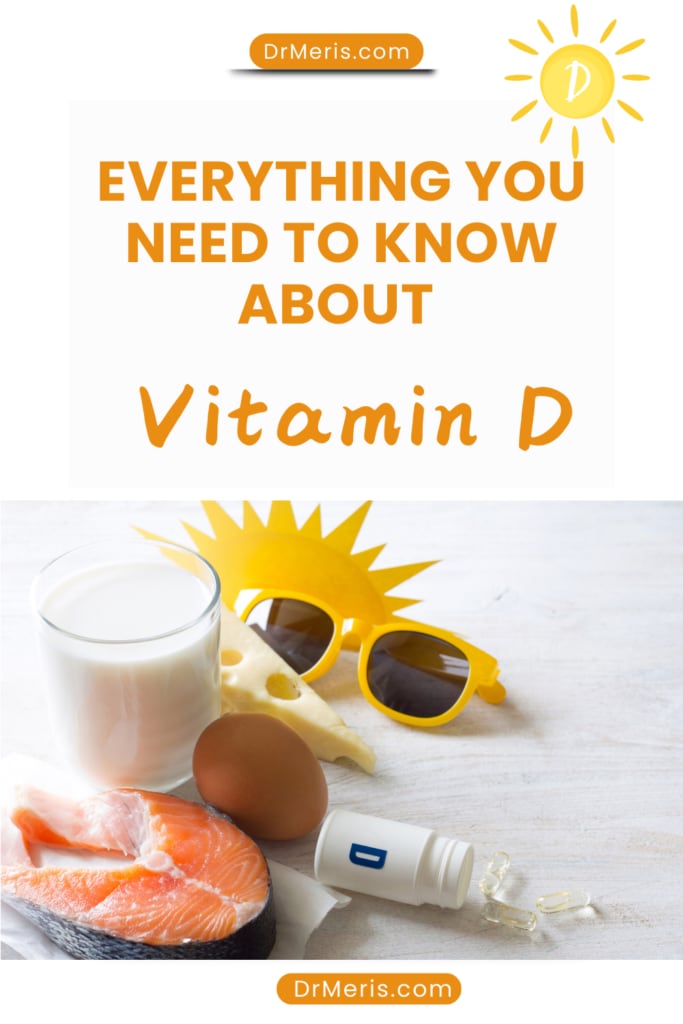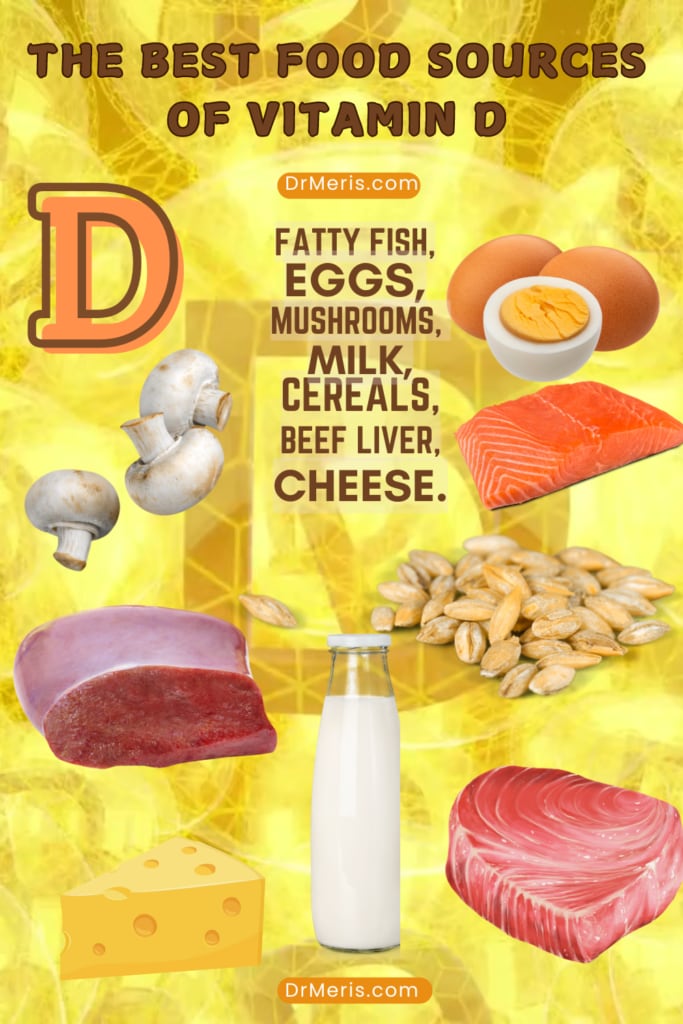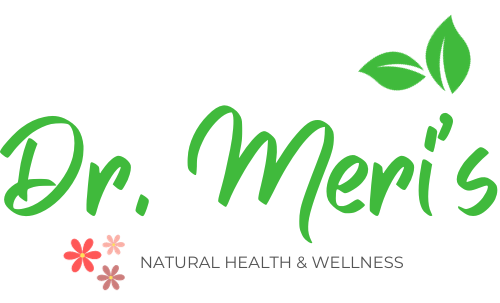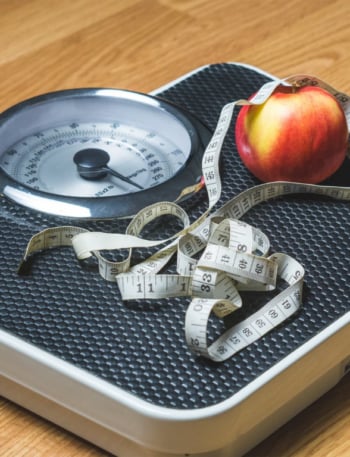Vitamin D is important for staying healthy. A lot of people call it the “sunshine vitamin” because your body makes it when you’re out in the sun. Eating foods like oily fish can also help you get more vitamin D.
Your body needs vitamin D to keep your bones strong and healthy and your immune system working right. Your body can make its own vitamin D when you’re out in the sun, but you can also get some from the food you eat. Some people may need to take supplements, but how much you need really depends on your age, where you’re from, and other factors.
If you’re not getting enough sun or vitamin D from your food, you may need to take vitamin D supplements, but too many supplements can be bad for you.
In this article, you’ll find everything you need to know about vitamin D. Topics covered include its functions, recommended daily doses, signs of deficiency, how to test for vitamin D, safety considerations, and potential side effects.

What is vitamin D?
Vitamin D is a category of fat-soluble secosteroids, primarily tasked with enhancing the absorption of calcium, magnesium, and phosphate in the intestines, in addition to performing various other biological roles. Within the human body, the two principal compounds of this category are vitamin D3, also known as cholecalciferol, and vitamin D2, referred to as ergocalciferol.
What is the difference between vitamin D3 and vitamin D2?
When you buy vitamin D supplements, you might encounter two distinct types: vitamin D2 and vitamin D3. Vitamin D2 is synthesized from plants and is present in fortified foods and certain supplements. On the other hand, vitamin D3 is naturally produced by the human body and is found in animal-based products.
There’s a debate about whether vitamin D3, known as “cholecalciferol,” is superior to vitamin D2, referred to as “ergocalciferol,” in terms of elevating blood vitamin levels.
A comprehensive review of studies comparing the impact of vitamin D2 and D3 supplements on blood vitamin levels revealed that D3 supplements were more effective in increasing and maintaining higher levels of the vitamin compared to D2. Some professionals prefer vitamin D3 as it is naturally produced by the body and is present in most foods that naturally contain the vitamin.
What are the functions of vitamin D proven by science?
Strong bones.
Vitamin D helps your body absorb calcium better, which is key for keeping your bones and teeth healthy.
Rickets: This rare condition, which primarily affects children, is caused by a deficiency in vitamin D. Supplementation with vitamin D can prevent and treat rickets.
Osteomalacia: Vitamin D supplements are prescribed for adults suffering from severe vitamin D deficiency, characterized by a loss of bone mineral content, bone pain, muscle weakness, and soft bones (osteomalacia).
Osteoporosis: Research suggests that individuals who receive adequate amounts of vitamin D and calcium through their diet may experience a reduction in bone mineral loss, thereby helping to prevent osteoporosis and decrease the risk of bone fractures.
Inherited bone disorders: Vitamin D supplements are employed in the management of inherited bone disorders, such as familial hypophosphatemia, which are caused by an inability to absorb or process vitamin D.
Fights the flu.
Researchers are still trying to understand how effective vitamin D is at treating or preventing the flu. One study found that giving vitamin D drops during the winter reduced the number of Japanese kids who caught the flu. It’s pretty clear that it plays a key role in keeping your immune system strong. If you don’t have enough vitamin D, your body struggles to fight off germs.
Decreases the incidence of multiple sclerosis.
Evidence supports the notion that long-term vitamin D supplementation may decrease the incidence of multiple sclerosis.
Cognitive Health.
Studies indicate that insufficient levels of vitamin D in the bloodstream are linked to cognitive decline. However, additional research is necessary to ascertain the extent of the benefits associated with vitamin D supplementation for cognitive health.
Cancer.
Vitamin D may work as an anti-inflammatory, help regulate the immune system, promote cell death, and stop new blood vessels from forming. We’re not sure yet if vitamin D really helps protect against cancer. We need more studies to figure out if taking vitamin D can lower the chance of some cancers.
Autoimmune diseases.
Some studies suggest that not getting enough vitamin D for a long time could be linked to getting autoimmune diseases like type 1 diabetes and rheumatoid arthritis, but we need more studies to be sure.
Why am I not getting enough Vitamin D?
Even though our bodies can make Vitamin D from the sun, some people don’t manage to get enough. Here are some reasons why:
- Not enough sun: If you live up north or in places with a lot of pollution, you might not soak up as much Vitamin D as others. People who work night shifts or don’t spend much time outside can also end up lacking in this vitamin.
- Skin color matters: The darker your skin is, the harder it is for your body to absorb the sun’s UVB rays, which is where Vitamin D comes from. So, people with darker skin make less vitamin D from the sun compared to those with lighter skin.
- Breastfeeding: Babies can’t get enough vitamin D from breast milk. The American Academy of Pediatrics says that babies who are only or mostly breastfed need to take a 400 IU vitamin D supplement every day until they start eating solid foods. After that, they should have at least 1,000 mL of vitamin D-fortified formula or whole milk every day.
- Gastric bypass surgery: This surgery cuts out part of the intestine that usually absorbs a lot of vitamin D, which can lead to a deficiency.
- Weight plays a role: If you have a lot of body fat, it can make it harder for your body to absorb vitamin D from the skin.
- Getting older: As we age, our skin doesn’t make as much vitamin D, and older people tend to stay indoors more.
- Some health issues: Since vitamin D is stored in fat, if you have a health condition that makes it hard for your body to absorb dietary fats, you might not be getting enough vitamin D from what you eat.
Vitamin D Deficiency
Most people who don’t get enough vitamin D don’t feel anything. But, if you’re not getting enough for a long time, you might end up with a condition called osteomalacia. This can make you feel:
- bone pain
- joint pain
- muscle weakness, or spasms
Vitamin D deficiency may also mess with how your bones and teeth grow, and even lead to osteoporosis, which makes your bones weaker and increases the chance of falling and breaking bones, especially as you get older.
Not getting enough vitamin D can also cause your parathyroid glands to go haywire, making too much of a hormone that makes your blood calcium levels too high.
How much vitamin D should I take daily?
You can figure out how much vitamin D you’re getting in micrograms (mcg) or international units (IU). One mcg of vitamin D is the same as 40 IU. The daily amounts you should aim for are like this:
| Demographic | Recommended daily intake |
|---|---|
| Infants 0-12 months | 400 IU (10 mcg) |
| Children 1-18 years | 600 IU (15 mcg) |
| Adults up to 70 years | 600 IU (15 mcg) |
| Adults over 70 years | 800 IU (20 mcg) |
| Pregnant or lactating women | 600 IU (15 mcg) |
Food Sources
Foods rich in Vitamin D3 are pretty rare.
- The top spots are fatty fish like salmon and tuna, and fish liver oils.
- You can also find a bit in: egg yolks, cheese, and beef liver.
- Some mushrooms have a bit of vitamin D2, and some are even packed with it because they’re purposely hit with UV light.
- A lot of products and vitamins have added vitamin D, like milk, cereal, and orange juice. Some brands even add it to plant milks and dairy.
- Cod liver oil (available as supplements), salmon, tuna fish, fortified milk and plant milks, and beef liver are some of the best sources.

Am I at risk of not getting enough of vitamin D?
Individuals who don’t consume milk, eggs, or fish, like those who are lactose intolerant or vegan, are at a higher risk.
Others who might not be getting enough vitamin D include those with inflammatory bowel disease (like ulcerative colitis or Crohn’s disease), or any condition that messes with how your body digests fat.
Vitamin D is a type of vitamin that needs fat to be absorbed by your gut. People who are overweight usually have lower levels of vitamin D because it gets stored in fat and isn’t easily used by the body.
Did you know?
Just sitting in a sunny office or driving in a car won’t give you enough vitamin D because the glass in windows blocks the UVB light you need.
How is vitamin D tested?
The 25-hydroxy vitamin D test (also known as the 25-OH vitamin D test and the calcidiol 25-hydroxycholecalcifoerol test) is the best way to figure out how much vitamin D you’ve got in your system.
Usually, you don’t need to skip a meal. But that’s all up to the lab and the tests you’re getting. Make sure to follow any fasting instructions they give you.
What’s the normal range of vitamin D?
The normal range for 25-hydroxy vitamin D is measured in nanograms per milliliter (ng/mL) or nanomoles per liter (nmol/L). A lot of experts say it should be between 20 and 40 ng/mL or 60 and 100 nmol/L. But some say it should be between 30 and 50 ng/mL (75 to 125 nmol/L).
These are the usual ranges for what’s considered normal. Keep in mind, though, that different labs might use different ranges or test different samples. Talk to your doctor about what your specific test results mean and if you might need to take vitamin D supplements.
What happens if my vitamin D levels are low?
If your levels are too low, it could mean you’re not getting enough vitamin D, which might be because:
- You’re not getting enough sun on your skin, you have dark skin, or you’re always using sunscreen with a high SPF
- You’re not eating enough foods with vitamin D
- You have liver or kidney problems
- You’re not absorbing food well
- You’re taking certain medications like phenytoin, phenobarbital, or rifampin
- You’re not absorbing vitamin D well because you’re older, you’ve had weight loss surgery, or you have a condition that makes it hard for your body to absorb fat
- Low vitamin D levels are more common in African American kids, especially in the winter, and in babies who are only breastfed.
What happens if I get too much of vitamin D?
Children, adults, and women who are pregnant or breastfeeding, should not exceed 4,000 IU of vitamin D daily.
If your levels are too high, it’s usually because you’ve been taking too much vitamin D. This can lead to too much calcium in your blood (hypercalcemia), which can cause a some symptoms and damage your kidneys.
Symptoms of having too much Vitamin D include:
- a decrease of appetite
- losing weight
- irregular heartbeat
- buildups of calcium (leading to hardening in blood vessels and tissues, which may damage the heart and kidneys.)
If you’re taking a lot of vitamin D supplements, you may end up with too much. The small amounts of vitamin D in food are unlikely to cause harm, and getting too much sun doesn’t usually lead to toxicity because the extra heat stops Vitamin D from being made.
Can vitamin D supplements interact with medications or other supplements?
Yes. vitamin D supplements may have interactions with some medications. Here are a few examples:
- Diuretics, such as Hygroton, Lozol, and Microzide, may cause your blood calcium levels to rise too high if you’re also taking vitamin D supplements.
- Statins, which are used to lower cholesterol, might not be as effective if you’re taking high doses of vitamin D supplements. This includes atorvastatin (Lipitor), lovastatin (Altoprev and Mevacor), and simvastatin (FloLipid and Zocor).
- Orlistat (Xenical and Alli) is a medication used for weight loss. It can reduce the absorption of vitamin D from both food and supplements in your body.
- Steroids like prednisone (Deltasone, Rayos, and Sterapred) can decrease your vitamin D levels in the blood.
It’s important to inform your doctor, pharmacist, and other healthcare professionals about any dietary supplements you’re taking, as well as any prescription or over-the-counter drugs. They can advise on potential interactions with your medications and explain if any of your drugs might affect your body’s ability to absorb or utilize other nutrients.
How can I increase my vitamin D levels quickly?
To raise your vitamin D levels, you can increase your sun exposure, take a supplement, and incorporate certain foods into your diet. If you’re spending more time outside, it’s crucial to apply sunscreen. Consider adding fish to your meals a few times a week to enhance your vitamin D intake.
Summary
Vitamin D is essential for maintaining healthy bones and supporting the immune system. Often referred to as the “sunshine vitamin,” it is produced by the body when the skin is exposed to sunlight. Besides sun exposure, vitamin D can also be obtained from certain foods such as fatty fish, fortified dairy products, and eggs.
Adequate levels of vitamin D are crucial for calcium absorption, which helps to prevent conditions like osteoporosis and rickets. Additionally, emerging research suggests that vitamin D may potentially reduce the risk of certain chronic diseases.
For those who live in regions with limited sunlight or have dietary restrictions, vitamin D supplements can be a helpful alternative to ensure sufficient intake. It’s always advisable to consult with a healthcare provider to determine the appropriate dosage and to avoid the risk of overconsumption.
Incorporating a balanced diet, regular outdoor activities, and being mindful of vitamin D levels can contribute significantly to overall well-being and health.
Related articles:
All about Magnesium Glycinate: Benefits, Dosage, Sides Effects, and More
Magnesium: Benefits, Deficiencies, Sources, Forms, and More
Thiamine (Vitamin B1) – Functions, deficiencies, sources, and more.
References
- Bikle, D. D. (2014). Vitamin D metabolism, mechanism of action, and clinical applications. Chemistry & biology, 21(3), 319–329.Elder, C. J., & Bishop, N. J. (2014). Rickets. Lancet (London, England), 383(9929), 1665–1676.
- Robien, K., Oppeneer, S. J., Kelly, J. A., & Hamilton-Reeves, J. M. (2013). Drug-vitamin D interactions: a systematic review of the literature. Nutrition in clinical practice : official publication of the American Society for Parenteral and Enteral Nutrition, 28(2), 194–208.
- Leary, Patrick F., Zamfirova, Ina, Au, Johnathan and McCracken, Ward H. (2017). Effect of Latitude on Vitamin D Levels. Journal of Osteopathic Medicine, 117 (7), 433-439.
- Sassi, F., Tamone, C., & D’Amelio, P. (2018). Vitamin D: Nutrient, Hormone, and Immunomodulator. Nutrients, 10(11), 1656.
- Shaker JL, Deftos L. Calcium and Phosphate Homeostasis. [Updated 2023 May 17]. In: Feingold KR, Anawalt B,
Blackman MR, et al., editors. Endotext [Internet]. South Dartmouth (MA): MDText.com, Inc.; 2000-. Available from: https://www.ncbi.nlm.nih.gov/books/NBK279023/ - Sizar O, Khare S, Goyal A, et al. Vitamin D Deficiency. [Updated 2023 Jul 17]. In: StatPearls [Internet]. Treasure Island (FL): StatPearls Publishing; 2024 Jan-. Available from: https://www.ncbi.nlm.nih.gov/books/NBK532266/
- “Vitamin D”. 2024. Office of Dietary Supplements, US National Institutes of Health. Accessed 19 September 2024.
Sign Up for Our Email List
Get our latest articles, healthy recipes, tips, and exclusive deals delivered straight to your inbox with our newsletter.
We won't send you spam. Unsubscribe at any time.








